The World Council for Public Diplomacy and Community Dialogue wants the UN to hold a referendum on the Pakistani side of the Durand Line to reunite the Pasthuns.
By Andy Vermaut, Brussels (Belgium)
The Durand Line, a 2,670-kilometer border established in 1893 by the British between Afghanistan and Brithish India, remains a complex and important issue today. We can certainly conclude that from the international conference who was organized last friday the 17th of february by president Andy Vermaut of the World Council for Public Diplomacy and Community Dialogue in Brussels. This international conference was organized on the occasion of United Nations World Day of Social Justice, which takes place this year on Monday, Feb. 20. On this day, Andy Vermaut asks the United Nations for its full cooperation for the organisation of a referendum for the Pasthuns on the Pakistani side of the Durand Line.
The Durand Line “border” is home to around 18 million Pashtuns living on both sides, making it a source of conflict and tension for decades. The key to resolving this issue lies in the hands of the nation and people who are affected by it. They should have the right to decide whether they want to become victims of globalization and expansion or protect their independence and autonomy. Barai Karimi, a Pashtun human rights defender in Belgium, spoke about this issue of self-determination for the Pashtun people. Barai Karimi (known by the Belgian people as Bassie), emphasized that the world’s obsession with globalization and expansion has left many nations and people unable to determine their own future and protect their independence and autonomy. The Durand Line serves as a perfect example of this problem. To address this issue, we must reject the notion of aggression and natural opal of globalization and expansion, and instead plead for self-determination to be at the center of our relief efforts.
Marginalization
Former Ambassador of Afghanistan to Cuba and member of the Central Committee of the People’s Democratic Party of Afghanistan, Nazeef Ullah Nahzat, has drawn attention to the harmful effects of the Durand Line on the Pashtun people. The Durand Line is a 2,430 km border between Afghanistan and British India that was drawn in 1893 and expired in 1993, but continues to be enforced as an international border. Pashtuns living in Pakistan face discrimination and marginalization, and are often denied basic rights and services. The Durand Line has also separated families and communities of the same ethnicity and culture, leaving many without access to their ancestral lands and cutting them off from their relatives. The Pakistani state’s atrocities against the Pashtun community, such as enforced disappearances, extrajudicial killings, and widespread human rights abuses, have created an environment of fear and instability, making it difficult for Pashtuns to lead normal lives and pursue their livelihoods. Amnesty International and Human Rights Watch have documented the widespread human rights abuses and atrocities committed against the Pashtun people in Pakistan, highlighting the systematic discrimination and marginalization faced by the community.It is imperative for the international community to take notice of these human rights abuses and take action to support the Pashtun people in their fight for justice and equality. The Pashtun community cannot continue to suffer at the hands of a border that should never have existed. The world must come together to support the Pashtuns and to help them fight for their basic rights and freedoms.
Suffering for the people
The President of the Afghan Milet Party Stanagul Sherzad argued that the Durand Line is a de facto, not an integer line. He emphasized the need for solutions to stop the fighting between Pakistan and Afghanistan and to address the problems of terrorism. The Pashtun people should be given a voice in determining their future and deciding whether they want to remain victims of aggression and natural opal of globalization and expansion. The Durand Line remains a complex and important issue for the Pashtun people. The call for self-determination for nations and people must be at the center of relief efforts. The international community must take notice of the human rights abuses committed against the Pashtun people and support their struggle for justice and equality. The solution lies in giving the Pashtun people a voice in determining their future and protecting their independence and autonomy.
The Durand Line: a contested border
The Durand Line, the 2670 km border between Afghanistan and Pakistan, has been a point of contention between the two countries for decades. In the recent conference organised by Andy Vermaut of the World Council for Public Diplomacy and Community Dialogue, participants discussed the issue of borders and its implications. The main focus of the conference was to bring attention to the Durand Line and its controversial history.
Zhaly Walli talked about the Durand Line who was created in 1893 by British India, and it was named after Sir Henry Mortimer Durand, the British Foreign Secretary who negotiated the agreement with Afghanistan. The agreement created a buffer zone between British India and Afghanistan, and it defined the border between the two countries. The agreement was supposed to be a temporary measure, but it has remained in effect for over a century. The conference participants argued that the Durand Line is not a legitimate border and that it was created by force and coercion. They pointed out that Afghanistan did not have any say in the creation of the Durand Line and that it was forced upon the country by the British. They also argued that the Durand Line is not recognized by international law and that it was created to serve the interests of British India and not the people of Afghanistan.The participants also discussed the role of proxy regimes in the creation and enforcement of borders. They argued that the British used proxy regimes in Afghanistan and other parts of the world to create borders and enforce their rule. They also pointed out that the use of force and coercion to create borders is not a legitimate way to define the boundaries of a country. The conference participants called for a new approach to the Durand Line issue. Some people argued that the issue should be resolved through negotiations and compromise between the two countries. They also called for the international community to support this approach and to help facilitate a peaceful resolution of the issue. The Durand Line stays a contested border that has been a source of tensions.
One struggle
Eliyar Tursun talked about the struggles for freedom and self-determination of the Pashtun people of Pakistan and also about the Uighur people of China. Eliyar Tursun highlighted the cultural oppression experienced by both groups and the need to resist any attempt to suppress cultural diversity. The Pashtun people have long been fighting for the right to self-determination and reunification of their divided nation. The Uighur people, on the other hand, have been subjected to cultural pressure by the Chinese government, which seeks to erase their languages, culture, and way of life. Both groups share a common goal of achieving freedom and self-determination. Human Rights Defender and UKPNP Secretary Jamil Maqsood discussed the historical perspective of the division of Afghanistan into two pieces as a buffer zone between Afghanistan and British India. The Pashtun people and the people of Kashmir have both become victims of British policies, resulting in the marginalization and suppression of their identity. The speakers emphasized the importance of preserving cultural diversity and standing in solidarity with those who are struggling for their fundamental human rights.
Right of self-determination
The right of self-determination was a central theme of the conference, and all the speakers called for all nations to have the right to self-rule and to be the masters of their own resources. The speaker Jamil Maqsood urged the people of Afghanistan and Jammu and Kashmir to work together to strive for a peaceful transition from their division to their self-determination. The economic potential of both regions was highlighted, with the people of both regions suffering due to their forced migration. The challenges faced by the Pashtun people of Pakistan were also discussed, including the suppression of their constitutional rights and the denial of their right to self-determination. The Pakistan Army has been responsible for killing thousands of Pashtuns, forcibly disappearing thousands more, and destroying thousands of shops. Media is afraid to speak out against the Pakistani government, and the silence of human rights organizations is distressing. The conference highlighted the need to stand in solidarity with those who are struggling for their fundamental human rights, particularly their right to self-determination. The speakers emphasized the importance of preserving cultural diversity and resisting any attempt to suppress it. Both the struggles of the Pashtun people and the Uighur people serve as a reminder of the importance of preserving cultural diversity and the need to continue to support those who are fighting for freedom and self-determination.
Pashto Language Ban and Foreign Interference
Zhaly Walli from the Afghan diaspora in the Netherlands, spoke about the Pashto language ban in Peshawar schools and the prohibition on discussing the history and leaders of the Pashtun people are just a few examples of the challenges faced by the Pashtun community. According to Zhaly Walli, foreign interference and the actions of the British Empire have played a significant role in destabilizing the region for over half a century. The speaker highlighted the destructive role that foreign powers have had in Afghanistan’s political and social systems revolution. She mentioned how the British had close relations with majority G7 leaders and the Taliban leaders, and how they monitored Afghanistan continuously, trying to destabilize it whenever the conditions were stable and united. The speaker also talked about the need for people to be aware of the issues facing the Pashtun community and to work towards practical steps in changing the situation. She mentioned the importance of education, noting that the history taught in schools often omits the injustices and atrocities committed against the Pashtun people by the British Empire and its colonies. Furthermore, a speaker discussed the importance of self-determination for all peoples and how the United Nations General Assembly has passed resolutions recognizing the rights of people living in places recognized as being under foreign occupation. Andy Vermaut suggested that an official referendum should be carried out in controlled conditions by the United Nations for the people of the Pakistani side of the Durand Line to rectify the mistakes of the past and provide legal term for all the Pashtun people. As last speaker Andy Vermaut concluded by calling on people to stand in solidarity with the Pashtun people and work towards a future that unites and upholds the principles of democracy and justice. He emphasized the importance of being the change that we wish to see in the world and working towards a brighter tomorrow with a referendum for the Pashtun people of the Pakistani side of the Durand Line under the control and coordination of the United Nations. In summary, the speaker’s talk highlighted the challenges faced by the Pashtun community, including foreign interference and the Pashto language ban, and emphasized the importance of education, self-determination, and practical steps towards a better future for the Pashtun people.
For generations to come
The issue of self-determination and cultural rights is a subject that has been passionately debated for years. The fight to preserve cultural heritage and language has been a struggle for many cultures and communities around the world, explains Khizer Hayat Afridi, Human Rights Activist and Social Media Influencer. The conference organizer Andy Vermaut also revalued the discussion about the right to talk in one’s own language. Many people face the problem of not being able to speak their own language due to cultural or political pressure. This issue was particularly relevant to the Pakistani side of the Durand Line, where people are often forced to speak a language that is not their own. The conference participants expressed their support for the right of people to speak their own language, to receive services and education in their own language, and to have justice delivered in their own language,” says Andy Vermaut, organiser of the conference.
Referendum
The people on the other side of the Durand Line have the right to determine their own fate, and this should be respected by all. The conference participants spoke of the importance of the right to determine one’s own culture and identity, and the need to ensure that this right is upheld. The conference also touched on the issue of independence. The Durand Line has been a point of contention between Afghanistan and Pakistan for decades, and many people on the Afghan side of the border believe that it should be an independent country. The conference participants spoke of the need for a referendum to be held under the control of the United Nations, and the importance of making this referendum diverse and inclusive. The conference was a success, and its participants left feeling energized and inspired. They spoke of the need for dialogue, not war, and the importance of coming together to find a peaceful solution. The conference participants also spoke of the need for education, and how education is the key to promoting cultural understanding and harmony. At the end of the conference, Lotfi Amine Hachemi spoke of the importance of living together in peace. The idea of international living together in peace is something that many people around the world can get behind, and the conference participants expressed their support for this idea. They spoke of the need to continue the fight for cultural and language rights, and the need to ensure that these rights are upheld for generations to come.
Titelbild / Fotos: privat
Auch ein Blog verursacht Ausgaben ...
1857

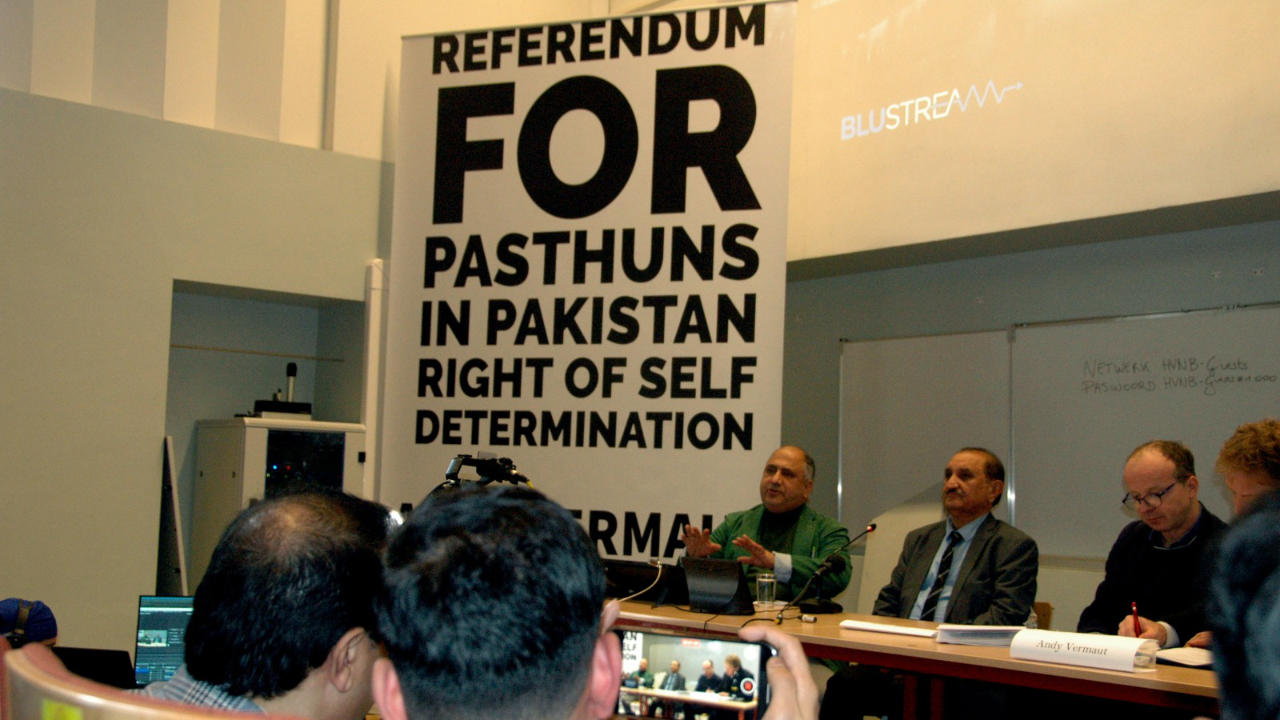
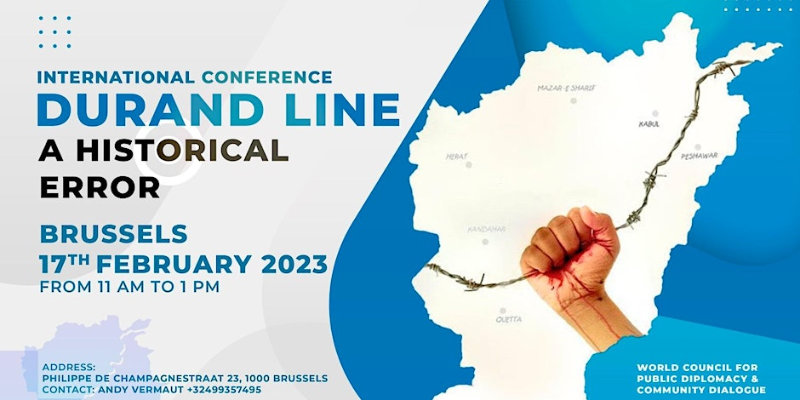
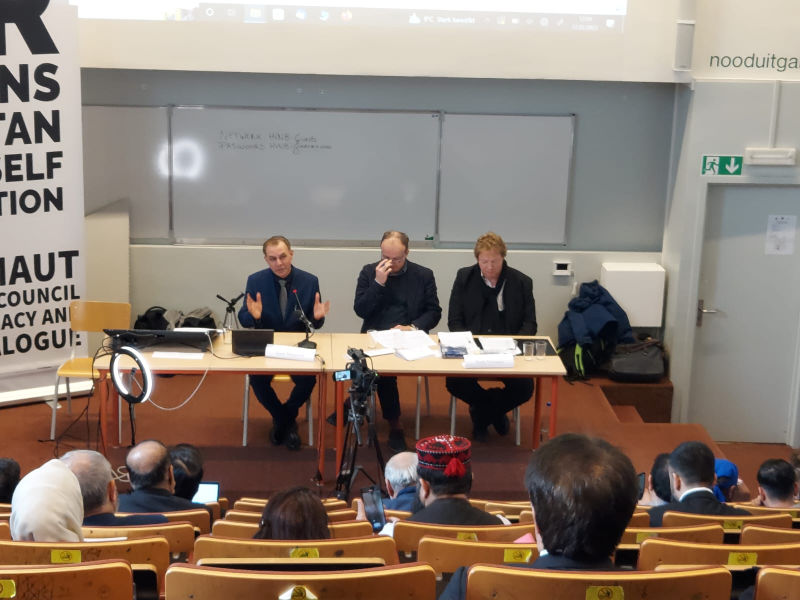
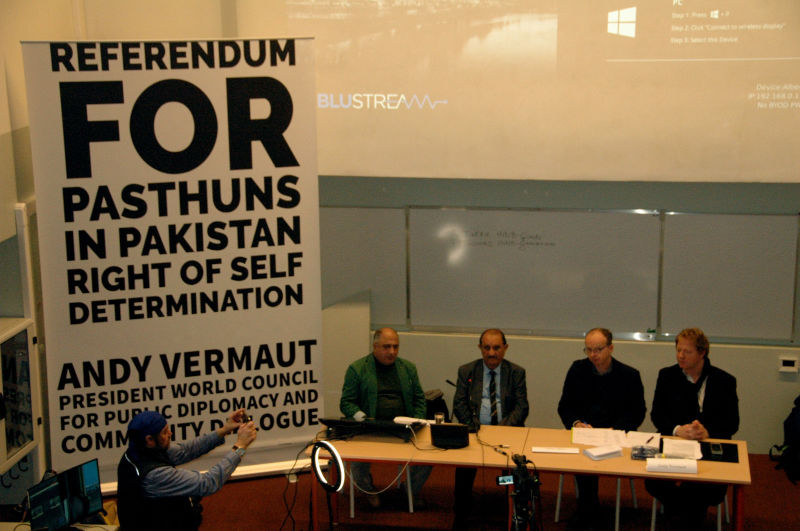
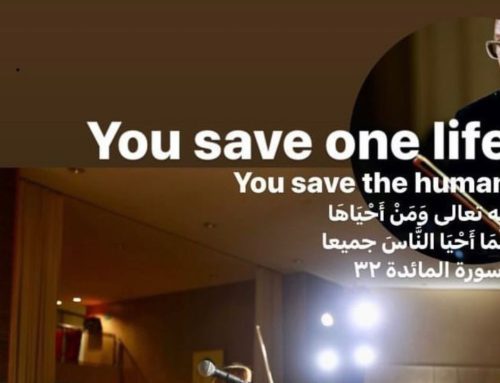
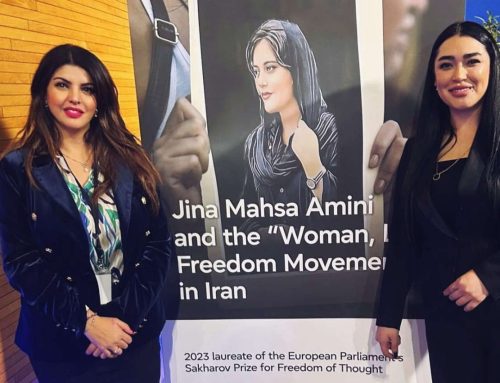
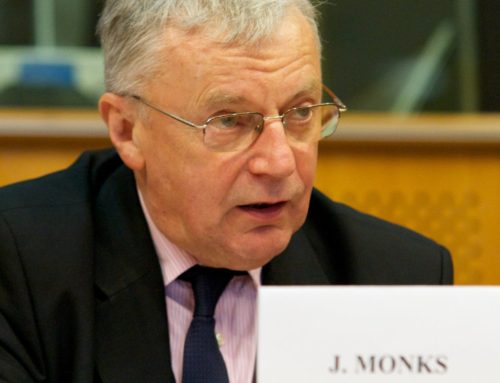
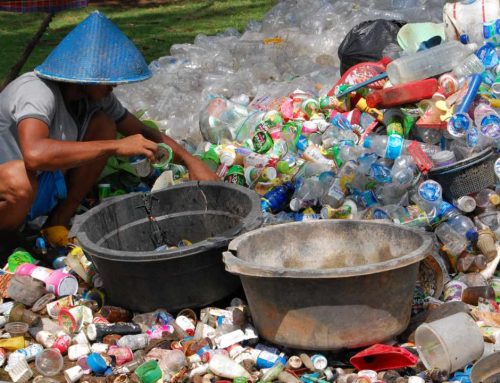
Leave A Comment